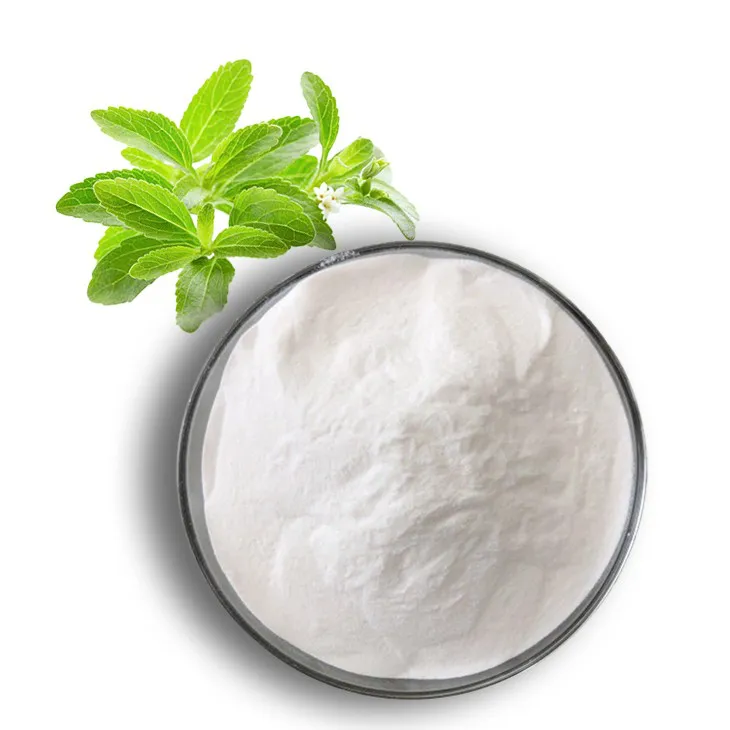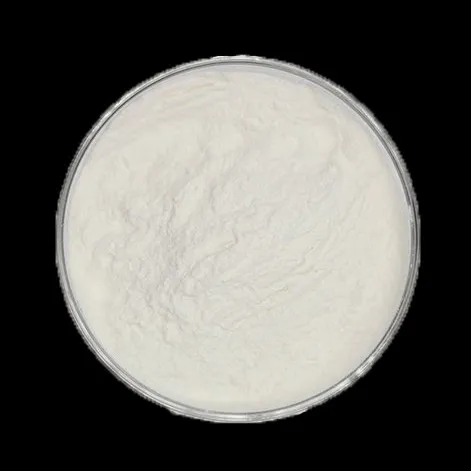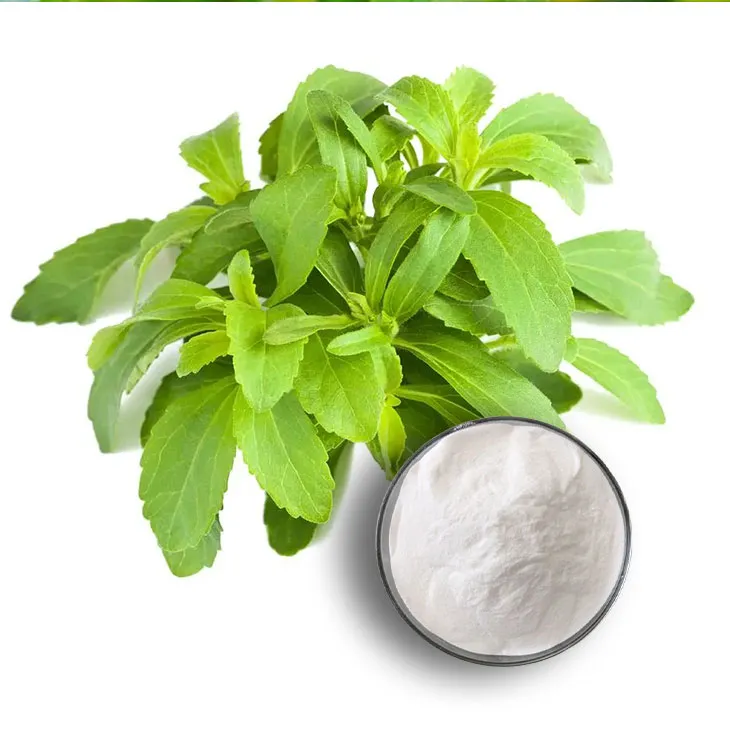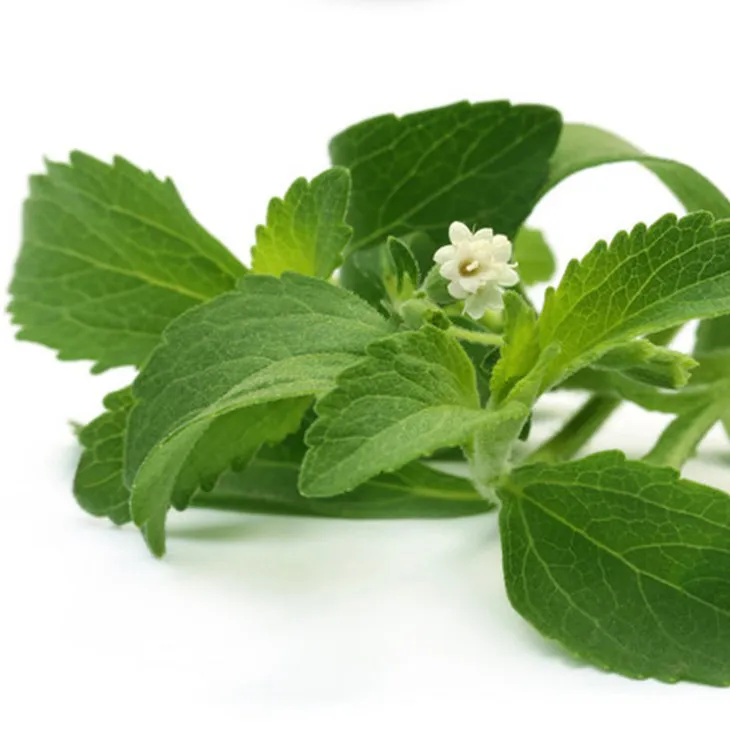- 0086-571-85302990
- sales@greenskybio.com
Stevia Extract: Benefits and Consumption Guide
2024-11-14

Introduction
In recent years, the demand for natural and healthy alternatives to artificial sweeteners has been on the rise. One such alternative that has gained significant popularity is Stevia Extract, derived from the Stevia rebaudiana plant. This article will delve into the various benefits of Stevia Extract and provide a comprehensive guide on how to consume it.

What is Stevia Extract?
Stevia extract is a natural sweetener obtained from the leaves of the Stevia rebaudiana plant. Native to South America, this plant has been used for centuries by indigenous people for its sweetening properties. The extract contains various compounds, with steviol glycosides being the main ones responsible for its intense sweetness. These glycosides are much sweeter than regular table sugar, allowing for a very small amount to be used to achieve the same level of sweetness.

Benefits of Stevia Extract
1. Zero - Calorie Sweetening
One of the most appealing aspects of stevia extract is that it is a zero - calorie sweetener. For individuals who are conscious of their calorie intake, whether it be for weight management or general health reasons, stevia offers a great alternative to sugar and other high - calorie sweeteners. This means that you can enjoy sweet - tasting foods and beverages without the added worry of consuming extra calories. For example, if you are trying to cut down on sugary drinks but still crave a sweet flavor, using stevia - sweetened beverages can be a smart choice.
2. Suitable for Diabetics
Stevia extract has a glycemic index of zero. This makes it an excellent option for diabetics. The glycemic index measures how quickly a carbohydrate - containing food raises blood glucose levels. Since stevia does not affect blood sugar levels, it can be used as a substitute for sugar in diabetic diets. Diabetics can use stevia to sweeten their coffee, tea, or even in cooking and baking without the fear of spiking their blood sugar. It provides a way to add a touch of sweetness to their diet while still maintaining good blood - glucose control.
3. Antioxidant Properties
Some studies suggest that stevia extract may possess antioxidant properties. Antioxidants play a crucial role in protecting the body against oxidative stress, which is caused by free radicals. Free radicals are unstable molecules that can damage cells and contribute to various health problems, including aging, heart disease, and certain cancers. The antioxidant compounds in stevia may help neutralize these free radicals, potentially reducing the risk of developing these diseases. However, more research is needed to fully understand the extent of these antioxidant benefits.
4. Dental Health Benefits
Unlike sugar, stevia extract does not promote tooth decay. Bacteria in the mouth feed on sugar and produce acids that can erode tooth enamel, leading to cavities. Since stevia is not a fermentable carbohydrate for oral bacteria, it does not contribute to this process. Using stevia - sweetened products can be a good option for maintaining good dental health, especially for those who are prone to dental problems.

How to Consume Stevia Extract
1. Stevia in Beverages
Stevia extract can be easily added to a variety of beverages.
- Coffee and Tea: Many people enjoy adding a few drops of stevia extract to their morning coffee or tea instead of using sugar or artificial sweeteners. It provides a natural sweetness without altering the flavor profile too much.
- Fruit Juices: If you find your fruit juice a bit too tart, you can add a small amount of stevia to sweeten it. This can be a great way to reduce the overall sugar content while still enjoying a sweet - tasting juice.
- Smoothies: When making smoothies, stevia can be used as a substitute for honey or other sweeteners. It blends well with the other ingredients and gives the smoothie a pleasant sweetness.
2. Stevia in Cooking and Baking
While stevia is much sweeter than sugar, it can still be used in cooking and baking with a bit of adjustment.
- When using stevia in recipes that call for sugar, it is important to note that a much smaller amount is required. For example, if a recipe calls for 1 cup of sugar, you may only need a fraction of a teaspoon of stevia extract, depending on the brand and the level of sweetness you desire.
- Some stevia products are blended with other ingredients like erythritol or inulin to make them more suitable for baking. These blends can be used in a more one - to - one ratio with sugar in baking recipes, but it is still advisable to follow the specific instructions on the product label.
- Stevia can be used in savory dishes as well. For instance, it can be added to a glaze for roasted vegetables or in a marinade for meats to add a touch of sweetness without the use of sugar.
3. Stevia - Based Products
There are many stevia - based products available in the market today.
- Stevia Tablets: These are convenient for on - the - go use. You can simply drop a tablet into your coffee or tea and stir. They are pre - measured, so you don't have to worry about adding too much or too little stevia.
- Stevia Powder: This is a versatile form that can be used in cooking, baking, or adding to beverages. It can be measured out according to your taste preferences.
- Stevia - Sweetened Drinks: There are also pre - made drinks that are sweetened with stevia, such as some diet sodas and flavored waters. These can be a great option for those who want a ready - to - drink, low - calorie, and sweet beverage.

Precautions and Considerations
While stevia extract is generally considered safe for consumption, there are a few things to keep in mind.
- Some people may experience a slightly bitter aftertaste when using stevia. This can vary depending on the quality of the extract and individual taste preferences. Experimenting with different brands or forms of stevia may help to find one that has a more pleasant taste.
- Although stevia is safe for most people, those with certain medical conditions or who are taking specific medications should consult their doctor before using stevia regularly. For example, if you have low blood pressure, stevia may potentially lower it further, so it is important to get medical advice.
- When purchasing stevia products, it is important to choose high - quality products from reputable brands. There may be some low - quality stevia products on the market that may contain impurities or other additives.
Conclusion
Stevia extract offers a range of benefits, from being a zero - calorie sweetener to having potential antioxidant properties. It is a great alternative for those looking to reduce their calorie intake, manage diabetes, or simply enjoy a sweet taste in a more health - conscious way. By understanding how to consume stevia in various forms and being aware of the precautions, individuals can incorporate this natural sweetener into their diet with confidence. As the demand for natural and healthy sweeteners continues to grow, stevia is likely to remain a popular choice among consumers.
FAQ:
What is stevia extract?
Stevia extract is a natural sweetener derived from the Stevia rebaudiana plant. It is known for its sweet taste but contains zero calories and has a glycemic index of zero.
What are the main health benefits of stevia extract?
The main health benefits include being a zero - calorie sweetener, which is great for those on a calorie - controlled diet. It has a glycemic index of zero, making it suitable for diabetics. Additionally, it may possess antioxidant properties.
How can stevia extract be consumed?
Stevia extract can be used as a substitute for sugar in various ways. It can be added to beverages like coffee, tea, or smoothies. It can also be used in baking, although the conversion ratio from sugar to stevia extract may need to be adjusted due to its much higher sweetness intensity.
Is stevia extract safe for everyone?
While stevia extract is generally considered safe for most people, some individuals may have rare allergic reactions. However, it is a great alternative for those with diabetes, obesity concerns, or those who simply want to reduce their calorie intake. As with any new food product, it is advisable to start with a small amount to check for any adverse reactions.
How does stevia extract compare to other sweeteners?
Compared to artificial sweeteners, stevia extract is a natural option. Unlike sugar, it has no calories and does not affect blood sugar levels in the same way. Some artificial sweeteners may have potential health concerns associated with long - term use, while stevia extract, being natural, may offer antioxidant benefits in addition to its sweetening properties.
Related literature
- The Health Benefits of Stevia Extract: A Comprehensive Review"
- "Stevia Extract: Safety, Consumption, and Potential Health Effects"
- "Stevia rebaudiana and Its Extract: An Overview of the Sweet and Healthy Alternative"
- ▶ Hesperidin
- ▶ Citrus Bioflavonoids
- ▶ Plant Extract
- ▶ lycopene
- ▶ Diosmin
- ▶ Grape seed extract
- ▶ Sea buckthorn Juice Powder
- ▶ Fruit Juice Powder
- ▶ Hops Extract
- ▶ Artichoke Extract
- ▶ Mushroom extract
- ▶ Astaxanthin
- ▶ Green Tea Extract
- ▶ Curcumin
- ▶ Horse Chestnut Extract
- ▶ Other Product
- ▶ Boswellia Serrata Extract
- ▶ Resveratrol
- ▶ Marigold Extract
- ▶ Grape Leaf Extract
- ▶ New Product
- ▶ Aminolevulinic acid
- ▶ Cranberry Extract
- ▶ Red Yeast Rice
- ▶ Red Wine Extract
-
Tamarind extract powder
2024-11-14
-
Quercetin
2024-11-14
-
Lycopene
2024-11-14
-
White mustard seed extract
2024-11-14
-
Peppermint Extract Powder
2024-11-14
-
Bayberry Extract
2024-11-14
-
Citrus Aurantii Extract
2024-11-14
-
Bilberry Extract
2024-11-14
-
Garcinia Cambogia Extract
2024-11-14
-
Reishi mushroom extract
2024-11-14





















